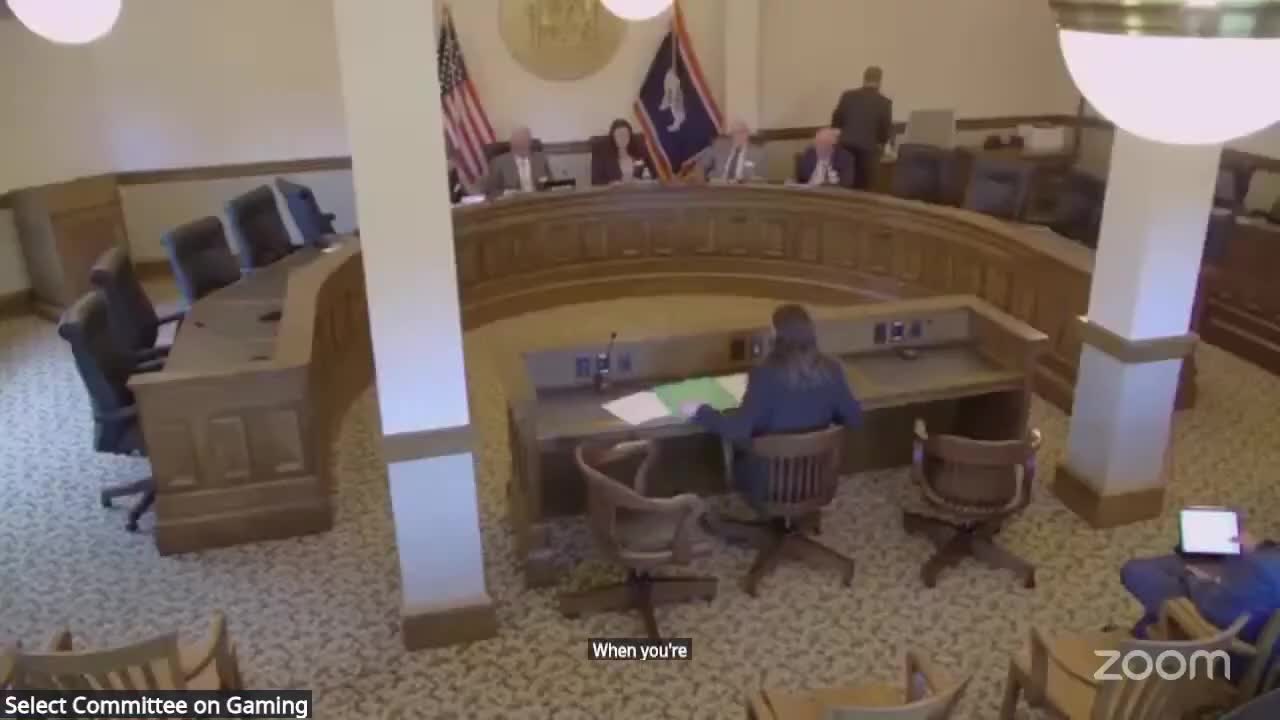Committee reviews bill to expand local approval for simulcasting; cities, counties and operators offer competing priorities
Get AI-powered insights, summaries, and transcripts
Subscribe
Summary
LSO presented a draft bill (26 LSO 1 45) to require local approval by cities, towns or counties for simulcasting facilities while retaining licensing at the state level; the draft also repeals the 100‑mile restriction and establishes limited "good cause" grounds for revocation of existing approvals.
Legislative Service Office staff presented working draft 26 LSO 1 45 to the Select Committee on Gaming on Oct. 14, describing a statutory rewrite that would create a single local‑approval pathway for simulcasting and historic horse racing permits and would allow cities and towns to play a formal role in local approval.
Key features of the draft: LSO staff described a new statutory section (proposed 11-25-210 in the draft) that would require a simulcasting applicant to obtain approval from the local approving authority (the governing body of the city, town or county that has jurisdiction where a facility is proposed). The draft preserves licensing at the state level — the Wyoming Gaming Commission would continue to issue permits — but inserts a local approval step and creates a process for written objections, public notice and for local authorities to impose "reasonable" conditions on permitted facilities.
Revocation and "good cause": the draft provides a narrowly defined set of grounds under which a city, town or county may deny renewal or revoke approval of an existing simulcasting approval: (1) breach of a reasonable condition imposed by the local authority that is not cured within a short period, (2) notification from the Gaming Commission that the permittee violated gaming law, or (3) failure to demonstrate commencement of operations within two years (with a possible one‑year extension for cause). LSO clarified those items are the only bases for revocation of an existing approval; local governments retain broader discretion over new applications that have not yet received state approval.
The 100‑mile rule and other contested points: the draft repeals the existing 100‑mile limitation that previously prevented simulcasting within 100 miles of a live pari‑mutuel event during race days. Some county and municipal officials supported removing the 100‑mile rule as part of a negotiated approach; 307 Horse Racing and other operators urged the committee to restore or retain the 100‑mile protection to preserve purses and local racing economics. LSO staff said the 100‑mile language could be restored or rewritten if the committee prefers a county‑line or alternative geography-based approach.
Appeals and due process: the draft distinguishes between appeals for existing permit holders and new applicants. For existing permit-holders, the draft preserves a path to district court review while approvals for new applicants are treated differently (the draft limited certain appeals for new applicants). Industry representatives asked that new applicants retain a right to district-court appeal if a local approving authority denies their request.
Stakeholder positions: counties and municipalities — represented at the hearing by the Wyoming County Commissioners Association and the Wyoming Association of Municipalities — said the draft provides clarity and tools local government needs to address community impacts and to negotiate conditions such as designated operating areas or hours. Mayors and county commissioners said public notice and local findings should be part of the process. Operators and their counsel said they want regulatory certainty but flagged provisions they view as potentially disadvantaging new entrants; Cowboy Racing and others asked that due process for new applicants and the 100‑mile rule be reconsidered to avoid singling out operators who invested under prior assumptions.
Next steps: committee members asked LSO and stakeholders to consider amendments on the 100‑mile rule (options include county‑line boundaries or restoring the existing language) and to fine‑tune the appeals provisions. LSO noted the draft could be effective July 1, 2026, with a one‑year compliance period so existing permit-holders would have time to come into compliance with any new local‑approval requirements.
